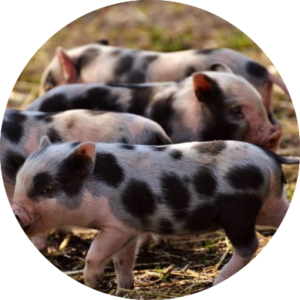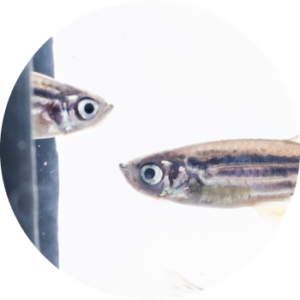Two Types of Residency: Choose Your Best Pathway
You can become either a standard resident or an alternate-route resident depending on your situation.
Either way, your training programme must meet the requirements set out below.
Ready to complete the application form? Head over to the Forms Page.
STANDARD RESIDENCY
Formal programmes in Europe
Standard programmes offer a consistent training plan as part of a group of Diplomates and other residents. There are 4 approved standard programmes throughout Europe.
ALTERNATE ROUTE RESIDENCY
Tailor your training
You and your Director can tailor a training programme suited to your specific needs. The length of time and other requirements are identical to standard programmes.
Components of a Residency Programme
Standard or Alternate Route
To navigate the presentation, use your arrow keys to go stepwise through the presentation; or click on each circle to go to that section.
Full details are found below.
Presentation not working on your tablet? Click here to open in full-screen URL.
Details on Requirements
Full details on each area of the presentation are described below.
Regardless of whether you follow the standard or alternate route residency, you must apply for credentials to sit the examination within two years of completing your residency training, and you must pass all parts of the examination within eight years of completing your residency. Exemptions may be made for periods of leave from work.
1
Veterinary Qualifications
You will need to provide copies of your veterinary licence, your diploma, and your current c.v. containing a complete description of your employment history.
If your veterinary school is not approved by EAEVE, ECLAM can exempt you from this requirement. The following are reasons for exemption:
-
- The competent authority of a Member State confirms that the ‘day-one competence’ of graduates of that school meet Dir 2013/55/EU.
- You are licensed to practise in a Member State different from the one where your veterinary school is located.
- You have passed statutory examinations in a Member State that would allow you to practise there.
- ECLAM may exempt you from this requirement based on review of documents about your veterinary school. Contact us before applying if this is the case.
2
Internship
ECLAM’s rules on internship are flexible due to the nature of our work. We define ‘internship’ as the first 12 months of work experience after your veterinary qualification. During this time it is expected that you obtained significant clinical experience to support your veterinary school training. Your experience might have been in a practice, in an academic setting (ie during PhD or research work), in a pharmaceutical company working as a junior lab animal vet, or possibly other roles. You must provide a letter from your internship supervisor, or alternatively your ECLAM Director, to affirm that your internship meets this expectation.
3
Supervisors
All residents must have an ECLAM Diplomate as the Director of their training. Ideally the Director will be your direct supervisor at work, but this is not compulsory. Alternate-route residents often have one or more ‘local co-supervisors’ to augment the training provided by their Directors. This might occur, for example, if you are located at an animal facility that has no Dipl. ECLAM present.
If your Director is not located close enough to provide you with day-to-day oversight, list one or more co-supervisors who can take on that responsibility. These supervisors must be approved by ECLAM, by submitting a c.v. showing that they possess equivalent qualifications to a Diplomate of an EBVS College, and by completing the same forms used by ECLAM Diplomates for re-certification.
If you plan to undergo training at more than one location for a significant period of time, describe each facility on your residency application, and name a supervisor for each place of study. You and your Director should determine how significant a particular place of study will be: for example, if you go to a primate facility for a few weeks to obtain training with these animals, this is not a ‘significant’ period of time. The supervisor at the facility will affirm the length of time and the training you received on your credentials application.
4
Training Plan (alternate-route only)
The largest portion of the application, for alternate-route residents, is the description of the training plan. Standard-route residents do not need to provide this, as their training programme has been pre-approved by ECLAM.
Your training plan is tailored to your specific needs, to ensure that you receive equivalent training to standard programmes. There are six general areas to be addressed in the training plan.
ECLAM develops and periodically revises a set of learning modules for training.
These are meant to encapsulate the range of knowledge which all Diplomates must possess, including the list of animal species most important in biomedical research. Your residency application includes a table on which to indicate how you expect to master these modules and species at the training facilities you describe. If your initial training plan changes during your residency, you and your Director should inform ECLAM of the new plans.Learning modules page
During your residency you are expected to acquire at least 200 hours of didactic formal training. This can be achieved by taking courses or workshops, attending conferences on specific topics, or participating in formal seminars. You will need to provide copies of attendance or completion certificates to verify these hours for credit. ESLAV and ECLAM sponsor annual Summer Schools which aim to offer appropriate levels of training for ECLAM residents. Often a mock exam is available as an additional part of the school, which may help you prepare for the ECLAM certification examinations. Two other programmes have been endorsed by ECLAM for residency training: LabVetEurope and the Master’s Degree from the University of Barcelona. These provide basic training for lab animal vets, either of which are a good start if you are new in the field. More advanced courses should be considered to fill any gaps in the Learning Modules for your specific needs.


